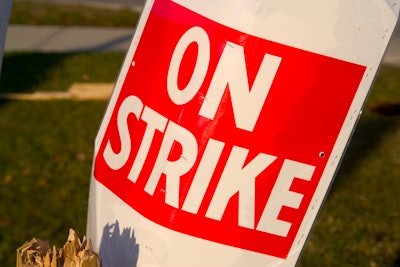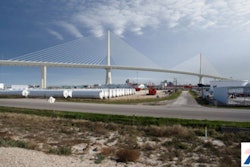
A strike by heavy equipment operators at aggregate quarries in northern Illinois that was stalling road projects has ended.
The 300 members of the International Union of Operating Engineers Local 150 ended their seven-week strike July 26 after a unanimous vote. The union reports that the workers at aggregates producers Lehigh Hanson, Vulcan and Lafarge Holcim will get a minimum of a 16.14% pay increase during the three-year agreement.
“The strike is over,” says a Facebook post from the Local 150. “We thank the members as well as the other building trades and the public for the incredible support you’ve shown us over the past seven weeks. It is our hope that this strike will help all workers achieve more at the bargaining table. FIGHT BACK.”
The three aggregates companies were bargaining with the union as the Chicago Area Aggregate Producers Association, which collectively operates 35 sand, gravel and stone quarries across northern Illinois.
In response to the strike’s end, a CAAPA spokesperson released the following statement:
“We’re pleased members of International Union of Operating Engineers Local 150 voted in favor of the three-year contract we negotiated in partnership with union leaders. The contract ensures the health, safety and protection of our valued employees. We look forward to welcoming them back to work.”
Several weeks after the strike began, Illinois Transportation Omer Osman urged CAAPA to reach agreement with the union, saying the strike was delaying road projects and could lead to bid lettings being suspended.
“The ongoing strike has brought many of our projects to a halt, with more projects shutting down by the day,” Osman wrote June 30. “…The timing of the work stoppage could not occur at a worse time, at the height of construction season and during peak driving season with an eager public ready to travel after two years of a pandemic.”











